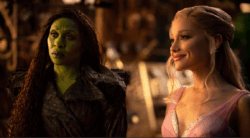This summer, I found myself taking a class at Fordham University that converted me from a skeptic to a believer. No, it wasn’t the standard philosophy or theology class that usually leads its students to classroom epiphanies. This was a class on early 20th century British literature, with a professor who was merciful enough to show movies or television shows during one of our inhumanly long classes per week. And I didn’t find God or purpose, but I found Downton Abbey.
Back in January 2011, when PBS first decided to take Downton from its native BBC and into living rooms across the pond, it became a miniature phenomenon among, well, people who watch PBS. And I, who like to consider myself somewhat of the anti-TV snob TV snob—I love The Wire, but am not ashamed to admit that I’ve seen every episode of Flavor of Love—refused, somewhat on principle, to get into a show on the channel that airs a series about antiquing. A reference on an episode of Modern Family, where the pretentious Mitchell refers to “Downton Disney” instead of “Downtown,” and I figured the show, which, from what I gathered, was about a stuffy British family and their stuffy British servants, wasn’t for me and the rest of the American TV masses.
But those two episodes we watched in class had me changing my tune to something that sounded distinctly like “God Save the Queen.” And so I joined the subset of the population that is big enough for PBS to continue premiering the show into its third season, which opened to its largest audience yet on Sept. 26.
Downton is certainly not the first or only British import to enthrall American audiences, but it is unique in its distinct Britishness. Doctor Who would be a favorite among sci-fi nerds regardless of the characters’ country of origin, and Monty Python’s hilarity is based mostly on universal knowledge and sense of humor (who doesn’t love silly walks?). But Downton’s premise itself is one completely foreign to us Americans, who—and I mean no political statement here—aren’t familiar with the concept of aristocracy. But the trials of Lord Grantham and his family, as well as the servants with whom they are unexpectedly friendly and cordial, have entranced American audiences for reasons that go well beyond an affinity for cute accents and period costuming.
The biggest reason for this, if I may be so bold to say so, is Dame Maggie Smith. To members of our generation, this absurdly talented actress first crossed our screens as the beloved Professor McGonagall of all eight Harry Potter movies, a strict British schoolmarm who just so happened to be able to turn herself into a cat. But as Violet, the outspoken and old-timey grandmother of the Crawley family whose disdain for modernity and anything un-English drips from her every snarky, almost singsong-y syllable, Smith has made us all but forget those times she wore a pointy black hat. Week by week, her scenes are among the show’s best, as the septuagenarian outshines the fresh, beautiful faces of the show’s younger cast members.
But Dame Maggie is by no means the only reason why Downton is so captivating. Although audiences largely agree that the show’s second season lagged plot-wise—with Matthew and Lady Mary’s “will they or won’t they?” non-romance taking center stage in far too many episodes—the show keeps its audience’s intrigue with scandals that might not shock us right now, but which make the turn-of-the-century British aristocrat we all have living inside of us spill her tea in shock. Lady Sybil’s rebellious nature, culminating with an illicit romance with the family’s Irish revolutionary chauffeur, gripped our attention (or maybe just mine, and possibly because of a sizable crush on said chauffeur) almost as much as any heated conflict on The West Wing did. Lady Mary’s sex scandal, which the writers were savvy enough to include in the first season’s third episode, was shocking enough to the show’s characters that audiences don’t mind its lasting effects two seasons later, despite that any American show would credit it one episode’s reflection, maybe two at most.
And that, to me, is the most enticing thing about Downton and its goings-on. Because after watching an embarrassing number of seasons of Flavor of Love, it’s nice to enter a world where you’ll be scandalized by a good ol’ premarital affair.




